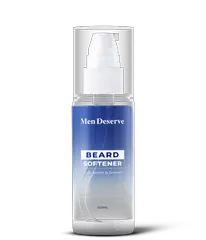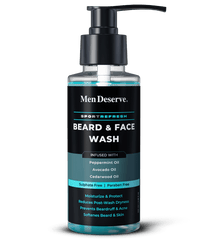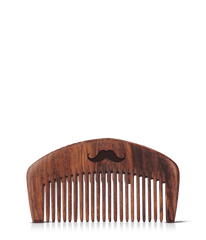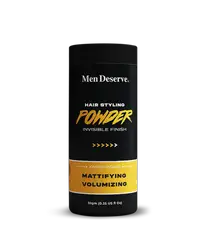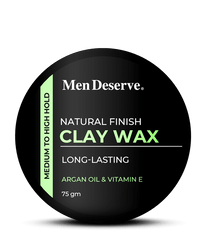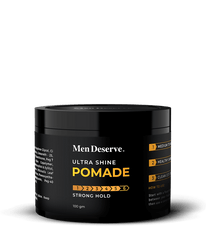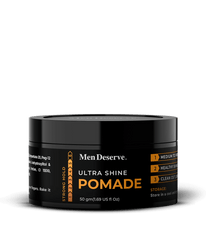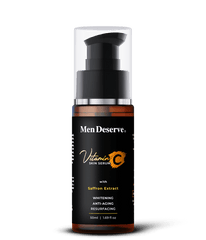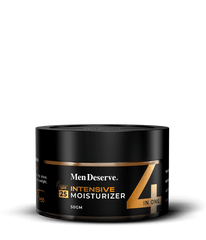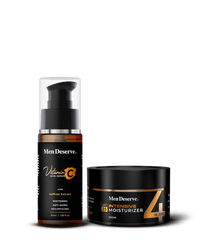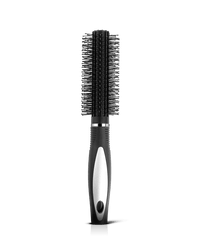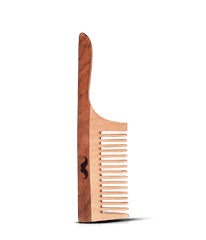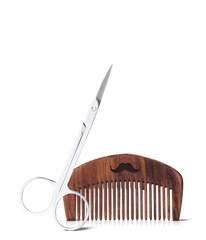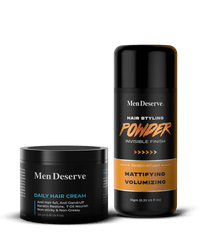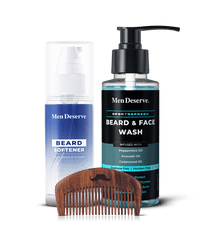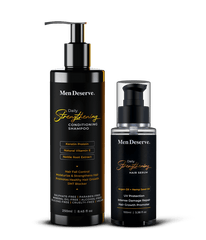Embracing Manhood
Ah, November - the month when the leaves start falling, pumpkin spice lattes are (hopefully) winding down and we’re all gearing up for the year’s end. But wait, it also marks the beginning of several significant movements aimed at bringing attention to men's health, raising awareness and challenging the stigma surrounding male focused health issues.
Among the most popular movements are Movember, No Shave November (NSN), and No Nut November (NNN). These initiatives, though varied in their missions, all share the goal of encouraging conversations about men’s health, mental well being and social engagement.
But what are these campaigns and why do they matter so much today?
Movember (Mo Bro)
Movember, founded in 2003 in Australia, is arguably the most recognizable and impactful of the November health movements. The concept of Movember is simple: men grow mustaches for the entire month of November to raise awareness for key issues affecting men’s health, including prostate cancer, testicular cancer and mental health.

Image Credit: @badjeremy
Origins of Movember
The term "Movember" is a blend of "moustache" and "November." It began as a conversation among a group of friends in Melbourne, who were discussing how little awareness there was about men’s health issues. They decided to grow mustaches and encourage others to do the same, with the aim of bringing attention to prostate cancer. From this small group of friends, the idea snowballed into a global movement.
Movember officially became a non profit organization in 2004. Since then, Movember has expanded to address mental health and suicide prevention in men, alongside its initial focus on cancer. Movember has had a profound impact, raising millions of dollars annually to fund research, support programs and drive education on these critical topics.
Purpose of Movember
Video Credit: @movembertv
The goal of Movember is not just about looking ridiculous with a mustache (though it’s certainly a fun element) but about starting conversations. Prostate cancer and testicular cancer remain significant threats to men’s health, with thousands of new diagnoses each year. Men are also notoriously less likely to seek help when it comes to mental health struggles, which is why Movember places such an emphasis on breaking the stigma and creating an open environment where men can talk about their emotional wellbeing.
Through its efforts, Movember has helped fund over 1,250 men’s health projects, reaching millions of people globally. Its efforts have also included mental health resources, with initiatives focused on men’s ability to talk about and address issues like depression and anxiety. The Movember movement has helped men understand that it’s okay to not be okay and that they do not have to face their challenges alone.
Impact of Movember
- Raising Awareness: Movember has brought conversations about prostate cancer, testicular cancer, and mental health into the public discourse.
- Fundraising for Research: Through fundraising, Movember has raised hundreds of millions of dollars for projects focused on men’s health.
- Normalizing Men’s Mental Health Conversations: The movement has played a crucial role in removing the taboo surrounding men talking about mental health.
- Global Reach: Movember’s success has transcended borders with people around the world participating and contributing to the cause.
Movember in 2026: What's New?
Movember evolves each year, introducing fresh themes, activities and programs to expand its reach. In 2026, Movember continues its focus on mental health, with added emphasis on resilience training and support networks for young men. Additionally, more interactive challenges and online resources are available, making it easier than ever for people worldwide to participate.
No Shave November (NSN)
While Movember uses the growing of mustaches as a symbol for awareness, No Shave November (NSN) takes a slightly different approach. In NSN, participants forgo shaving for the month, allowing their facial hair to grow freely. The idea is to raise awareness for cancer, particularly those types that affect men, such as prostate cancer, by letting hair grow wild and free, symbolizing the courage it takes to fight these diseases.

Image Credit: @flickr
Origin of No Shave November
Unlike Movember, No Shave November is less centralized and doesn’t have an official organization, but its impact is still significant. It originated as a grassroots initiative where individuals or groups pledged to stop shaving in November and donate the money they would typically spend on grooming products to cancer research.
The campaign spreads awareness by challenging the cultural norms surrounding men’s grooming habits. The idea is to shift the focus away from physical appearance, encouraging people to focus on issues like health, cancer research, and donations instead.
How No Shave November Works?
Video Credit: @thebeardbaron
The concept is simple: grow out your beard, mustache or hair throughout the month of November. Instead of using razors, individuals are encouraged to donate the cost of grooming products to cancer research organizations like the American Cancer Society. The movement highlights that cancer doesn’t just impact one gender or one type of individual - anyone can be affected and everyone should be aware of its effects.
While No Shave November is often associated with facial hair growth, it has broader implications. It’s about uniting people to stand in solidarity with those who are fighting cancer. It also reinforces the importance of early detection, supporting cancer research and the need for conversations around prevention and healthy living.
No Shave November Goals
- Raising Cancer Awareness: By participating in NSN, individuals help to shine a spotlight on various forms of cancer, particularly those impacting men.
- Fundraising: While there’s no central governing body, many participants donate to cancer research or ask for donations to support the cause.
- Promoting Conversations: Much like Movember, NSN also aims to get people talking - whether about the physical challenges of growing a beard or the larger topic of cancer prevention and care.
No Nut November (NNN)
A much more controversial and less widely known initiative is No Nut November (NNN), a challenge where participants abstain from self-pleasure for the entire month. While it’s often discussed as a "test of willpower" or a "self discipline" challenge, it doesn't have the same focused health goals as Movember or No Shave November. However, it does highlight an area of interest in men’s health - sexual health and the relationship between self control and mental wellbeing.
Video Credit: @robmulder
Origins of No Nut November
The roots of NNN are somewhat unclear, but it’s widely believed to have originated from online communities such as 4chan, Reddit and other internet subcultures. NNN often gains attention for being provocative or challenging traditional views on sexuality. While not officially connected to any charitable cause, some people have used NNN as a way to bring attention to issues of addiction, self discipline and the potential for unhealthy behaviors.
Purpose of No Nut November
The main objective of NNN is to encourage men to abstain from ejaculation for the month. While the movement doesn’t necessarily focus on health issues like cancer or mental health, it does prompt men to reflect on their habits and consumption of adult content, which many view as a potential source of addiction. Some people believe NNN may help with mental clarity, productivity and overall physical health, though scientific backing for these claims is limited.
However, critics argue that the challenge trivializes deeper issues and is not an effective method for addressing problems like po*n addiction or unhealthy relationships with sexuality.
Men Talks: Real Conversations for Real Guys
Video Credit: @BlackLove
Why Men’s Health Matters?
One unifying thread across Movember, No Shave November and even the quirkiest of internet challenges is the encouragement of Men Talks - open and honest discussions on men’s health and wellness. Men’s health issues are often brushed aside due to social norms, stigmas or just plain lack of awareness. Men are often less likely to visit doctors, less likely to discuss mental health and more likely to bottle up emotions.
The Power of Conversation
Movember and No Shave November both push for men to open up about these issues, whether it’s by sporting a mustache or letting your beard go untamed. And these conversations are more important now than ever. Mental health issues, for instance, affect millions of men each year, and the rate of suicide among men remains disproportionately high. Whether it’s talking about your own struggles or just checking in with friends, Men Talks can lead to stronger support networks, better mental health and improved wellbeing.
Breaking Down the Stigma
The idea is to normalize discussions around vulnerability, stress and health - things men are often socialized to "tough out." Men Talks is a reminder that it’s okay to admit that you’re not okay. By growing that mustache or letting that beard bloom, you’re silently saying, "Let’s talk about this."
Final Thoughts
Movember, No Shave November and No Nut November all serve different functions but share a common goal: to promote awareness about men’s health, encourage conversations and challenge societal norms. Whether it's through growing a mustache, refraining from shaving or taking on a personal challenge, these movements remind men of the importance of caring for their physical and mental well-being. They help create space for dialogue, reduce stigma and ultimately aim to build healthier, more open communities for men around the world.
FAQs
1. What does Movember stand for?
Movember is a combination of the words “moustache” and “November.” It is an annual event that encourages men to grow mustaches during the month of November to raise awareness and funds for men's health issues, particularly prostate cancer, testicular cancer, and mental health. Movember’s goal is to start conversations about these health issues, reduce stigma, and fund research and programs that improve men's health worldwide.
2. What are the rules for Movember?
The main rule for Movember is that participants must grow and maintain a mustache throughout the entire month of November. They can start with a clean shaven face on November 1st and grow a mustache for the month, asking for donations and support for their cause. Participants can also engage in fundraising by seeking donations to support Movember’s health initiatives, either through individual or team efforts. The mustache is the symbol of the movement and serves as a conversation starter for men's health awareness.
3. What kind of cancer is Movember for?
Movember focuses primarily on raising awareness for prostate cancer and testicular cancer. These two cancers affect men at high rates, and early detection can be key to successful treatment. The campaign also raises awareness about mental health issues affecting men, including depression and suicide prevention. Movember funds research, promotes health screenings, and creates resources to support men dealing with these health challenges.
4. What can girls do during Movember?
Although Movember is focused on men, girls (and women) can participate in several ways:
- Support and raise awareness: Women can raise awareness about men’s health issues by educating others, donating to the Movember foundation, or sharing information on social media.
- Fundraising: Women can help fundraise for the cause by organizing events, asking for donations, or supporting male participants.
- Encouragement: Women can encourage the men in their lives to take part in Movember, whether it’s by growing a mustache or talking openly about health concerns.
- Join Movember events: Some women also participate in Movember activities like virtual runs, walks, or health challenges that raise awareness about men's health.
5. What is the reason for no shave in November?
The idea behind No Shave November (NSN) is to raise awareness for cancer research, particularly cancers that affect both men and women. Participants abstain from shaving or grooming their facial hair (or body hair, in some cases) for the entire month of November. The movement aims to raise funds for cancer research, fund screenings, and start conversations about the importance of early detection. By letting their hair grow wild, participants symbolize solidarity with cancer patients, many of whom lose their hair during treatment.
6. Is No Shave November just for guys?
No Shave November is not just for guys. While it’s primarily focused on men, anyone (regardless of gender) can participate. The movement is about raising awareness for cancer and supporting research, which affects both men and women. Women can also participate by letting their hair grow for the month and donating the money they would have spent on grooming to cancer research. It’s about solidarity and spreading the message of health awareness, regardless of gender.
7. What does NNN mean?
NNN stands for No Nut November, an annual internet challenge where participants abstain from ejaculation for the entire month of November. The challenge has gained popularity due to its associations with internet culture and is typically seen as a test of willpower and self-control. The idea is for participants to refrain from sexual activity for 30 days as a personal challenge.
8. What is the real reason for no nut in November?
The real reason for No Nut November (NNN) is to challenge participants to demonstrate self-control and discipline. The movement is primarily focused on testing one’s ability to refrain from ejaculation for 30 days, with some participants viewing it as a way to improve mental clarity, boost testosterone levels, and break habits related to po*nography consumption. However, there is no scientific evidence to support significant health benefits from abstaining for a month. The challenge is more about self discipline, self reflection, and sometimes breaking free from unhealthy habits.
9. Why is NNN trending?
NNN (No Nut November) has been trending due to its strong presence in internet culture and memes. It has gained traction particularly on platforms like Reddit, Twitter and 4chan, where challenges, jokes, and viral trends often spread quickly. Participants often embrace the challenge as a fun way to push their limits, though it can also be viewed as a way to reflect on habits related to sexuality and po*nography. The growing trend is partly fueled by the humorous, competitive spirit of the challenge, as well as the curiosity about its supposed benefits. Social media plays a huge role in amplifying the visibility and participation of NNN, as people share their experiences and results.







